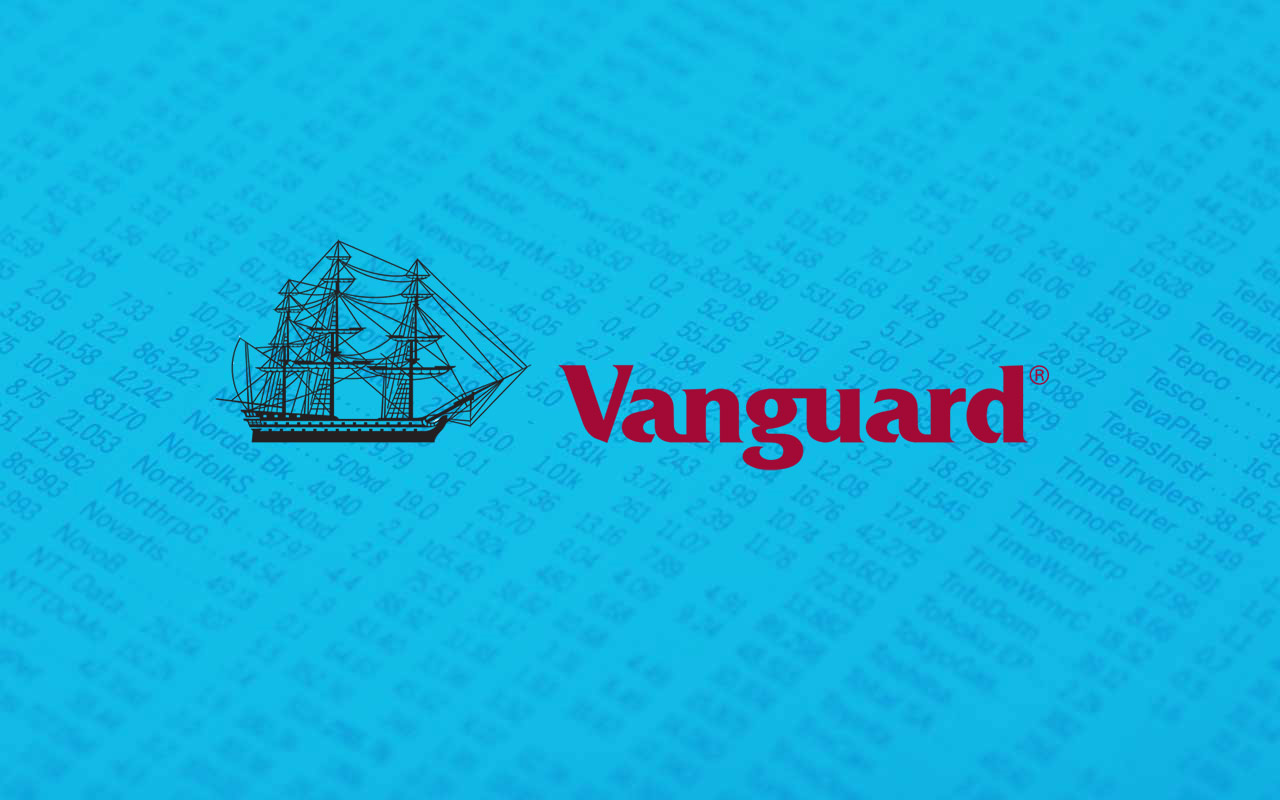5 Best Vanguard ETFs for Retirement
If you’re looking for a core group of ETFs that you can buy and hold through many years of retirement, check out the following five Vanguard funds. Two are bond ETFs that should provide some insurance against a stock market crash, along with a bit of income on the side.


Profit and prosper with the best of Kiplinger's advice on investing, taxes, retirement, personal finance and much more. Delivered daily. Enter your email in the box and click Sign Me Up.
You are now subscribed
Your newsletter sign-up was successful
Want to add more newsletters?

Delivered daily
Kiplinger Today
Profit and prosper with the best of Kiplinger's advice on investing, taxes, retirement, personal finance and much more delivered daily. Smart money moves start here.

Sent five days a week
Kiplinger A Step Ahead
Get practical help to make better financial decisions in your everyday life, from spending to savings on top deals.

Delivered daily
Kiplinger Closing Bell
Get today's biggest financial and investing headlines delivered to your inbox every day the U.S. stock market is open.

Sent twice a week
Kiplinger Adviser Intel
Financial pros across the country share best practices and fresh tactics to preserve and grow your wealth.

Delivered weekly
Kiplinger Tax Tips
Trim your federal and state tax bills with practical tax-planning and tax-cutting strategies.

Sent twice a week
Kiplinger Retirement Tips
Your twice-a-week guide to planning and enjoying a financially secure and richly rewarding retirement

Sent bimonthly.
Kiplinger Adviser Angle
Insights for advisers, wealth managers and other financial professionals.

Sent twice a week
Kiplinger Investing Weekly
Your twice-a-week roundup of promising stocks, funds, companies and industries you should consider, ones you should avoid, and why.

Sent weekly for six weeks
Kiplinger Invest for Retirement
Your step-by-step six-part series on how to invest for retirement, from devising a successful strategy to exactly which investments to choose.
If you’re looking for a core group of ETFs that you can buy and hold through many years of retirement, check out the following five Vanguard funds. Two are bond ETFs that should provide some insurance against a stock market crash, along with a bit of income on the side. A third pick covers a broad swath of the U.S. stock market, and a fourth does the same for overseas bourses, offering potential for long-term growth. Our fifth ETF focuses on real estate investment trusts—a compelling way to generate above-average yields in an era of ultralow interest rates.
The amount you should invest in each of these ETFs depends on your income needs and other personal factors. Based on the asset allocation in the Vanguard target-date fund designed for investors who retired in 2015, it would be reasonable for recent retirees to hold 46% of their assets in stocks and 54% in bonds. Some advisers recommend much higher percentages of stocks, though, upward of 65% if you can tolerate potentially steeper short-term losses in return for higher long-term growth in your portfolio.
Whatever mix you choose, you won’t pay much in annual fees with these funds, which are among the cheapest on the planet. For example, annual expenses for one of our picks, Vanguard Total Stock Market (symbol VTI), amount to just 0.05% per year, or $5 per $10,000 invested. Many stock ETFs charge considerably more—upward of 0.50% a year—making Total Stock a bargain.
Over time, paying less for ETFs can add up to substantially higher investment gains. None of these ETFs distribute much capital gains, moreover, making them good choices for well-heeled retirees investing in a taxable account.
Our picks are listed in alphabetical order. Returns are as of October 21; 3-year returns are annualized.

Vanguard Intermediate-Term Corporate Bond
- Symbol: VCIT
- Yield: 2.7%
- Expense ratio: 0.10%
- 1-year return: 7.2%
- 3-year return: 5.6%
Holding about 1,800 corporate bonds, Intermediate-Term Corporate sticks with high-quality debt issued by companies such as Apple (AAPL), JP Morgan Chase (JPM) and Verizon Communications (VZ). These are huge companies with reliable revenues and sturdy finances, making them unlikely to default on their bonds. In fact, the fund doesn’t hold any debt rated less than triple-B, the lowest investment-grade rating.
With a 2.7% yield, this ETF pays more than Vanguard Total Bond. But it doesn’t pose much more interest rate risk. If rates were to climb by one percentage point, the fund’s share price would decline by about 6.5%, similar to the losses Total Bond would incur in that scenario. If you don’t need the income, stash this ETF in an individual retirement account or another type of tax-deferred vehicle.
Granted, the ETF hasn’t been tested in a market meltdown. It launched in November 2009, well after the 2007-09 bear market ended. Since then, it has returned an annualized 6.4%. But it may not hold up well if the corporate bond market seizes up and fixed-income investors dump everything except Treasuries.
- SEE ALSO: 25 Great No-Load Mutual Funds

Vanguard REIT Index
- Symbol: VNQ
- Yield: 3.8%
- Expense ratio: 0.12%
- 1-year return: 7.6%
- 3-year return: 10.7%
REIT Index is a solid choice for retirees who want a steady investment paycheck. The ETF holds about 150 property-owning real estate investment trusts. These firms own such things as apartment complexes, hotels, malls, offices and warehouses. Profits come from rents, and investors reap most of that income (after operating expenses). The Internal Revenue Service requires REITs to shell out at least 90% of their taxable income as dividends, creating steady income for shareholders.
With its 3.8% yield, the ETF pays out at a much higher rate than the 2.2% yield of Standard & Poor’s 500-stock index. REITs also yield more than investment-grade bonds. And unlike bonds, which pay a fixed rate of interest, REIT payouts should keep rising as firms raise rents and acquire or develop more properties.
The downside to REITs is their sensitivity to interest rates. Property-owning firms tend to issue a lot of debt and would face higher financing costs if long-term rates were to climb. Already, the prospect of higher rates appears to have hurt this ETF, which has slumped 7.6% in the past three months.
Still, REITs have rebounded from rate increases in the past. The last time the Fed raised rates steadily, between June 2004 and June 2006, REITs returned a cumulative 57.9%, beating the S&P 500 by 42 percentage points, according to Cohen & Steers, an investment firm that specializes in REITs. Strong job growth and an expanding economy enabled landlords to raise rents back then, pushing up REIT payouts. If rates were to rise today because of another stretch of strong economic growth, REITs should be able to raise rents again, pushing up payouts and luring investors back to their fold.
One note about taxes: REITs mainly distribute income that isn’t eligible for the 15% tax rate on “qualified dividends.” If you’re in a high tax bracket, try to own this ETF in a retirement account to hold down the tax drag.

Vanguard Total Bond Market
- Symbol: BND
- Yield: 1.9%
- Expense ratio: 0.06%
- 1-year return: 4.5%
- 3-year return: 3.7%
Yielding just 1.9%, Total Bond Market won’t be a ticket to retirement riches. Plenty of other investments pay out at higher rates. So why own this ETF? Because it’s one of the best ways to buy insurance against a stock market crash.
With about two-thirds of its assets in Treasury bonds and other debt backed by Uncle Sam, and the remainder in high-quality corporate bonds, the ETF should be a bulwark against a selloff in stocks. In 2008, when the S&P 500 tumbled 37%, the fund posted a total return of 7.7% (including interest payments). In the case of another stock market panic, this fund should produce positive returns and keep your total portfolio from suffering heavy losses.
One big drawback to this ETF is that it won’t fare well if interest rates jump. Based on the maturities of its underlying bonds, its share price would decline by about 6% if market rates were to rise by one percentage point. Over time, investors would pocket higher interest payments in that scenario. But it could take a few years to get back in the black.
For now, though, we see scant signs that rates will increase sharply. The Federal Reserve has signaled that it plans to increase short-term rates at a glacial pace. Long-term rates, which are set by investors in the bond market, may not edge up much either. Bear in mind, too, that higher rates would likely coincide with strength in the economy, which should lift stocks. If you own a balanced investment mix, this ETF’s modest price declines should be more than offset by gains in the stock market.

Vanguard Total International Stock
- Symbol: VXUS
- Yield: 2.8%
- Expense ratio: 0.13%
- 1-year return: 2.3%
- 3-year return: -0.8%
Covering the world of stocks outside the U.S., Total International Stock invests in more than 6,000 companies based in Europe, Asia and other parts of the world. Developed-market giants such as Nestlé (NSRGY), Novartis (NVS) and Toyota Motor (TM) make up 84% of its assets, although the ETF also includes about 16% in emerging-market stocks, such as Chinese internet company Tencent Holdings (TCHEY) and Korean giant firm Samsung Electronics (not traded in the U.S.).
Foreign stocks haven’t fared well lately, returning much less than the S&P 500 over the past three years. A stronger dollar has made stocks priced in foreign currencies worth less when converted to greenbacks. Investors have also flocked to the U.S. because its economy has expanded at a faster clip than Europe’s and Japan’s in recent years.
Still, foreign stocks may now get a few tailwinds. Central banks in Europe and Japan are trying to stimulate their economies with ultralow interest rates and other measures. Foreign stocks also look cheaper and yield more than their U.S. counterparts, with developed foreign markets yielding an average of 3.3%, well above the S&P 500’s yield.
For retirees, this member of the Kiplinger ETF 20 should help diversify a U.S.-centric portfolio. Foreign markets don’t always march in lockstep with the U.S. Plus, you can get more exposure to fast-growing economies in Asia and other parts of the world with this ETF.
The amount you should invest in foreign stocks depends on your appetite for risk and other investments in your portfolio. Based on the asset mix of the Vanguard Target Retirement 2015 Fund (VTXVX)—suitable for people who recently retired—investors could justify holding about 20% of their portfolio in Total International Stock or its mutual fund equivalent, Vanguard Total International Stock Index Fund (VTIAX).

Vanguard Total Stock Market
- Symbol: VTI
- Yield: 2.0%
- Expense ratio: 0.05%
- 1-year return: 8.0%
- 3-year return: 8.6%
Growth and value stocks dip in and out of favor. Invest in Total Stock Market, however, and you won’t have to guess which style will take the lead. Another member of the Kiplinger ETF 20, the fund holds more than 3,600 stocks, aiming to capture the performance of the entire domestic market, including growth and value stocks and everything in between.
Ranking stocks by market value, the ETF places the most emphasis on large and megacap companies, such as Apple, ExxonMobil (XOM) and General Electric (GE). Big companies account for 71% of its assets. But it also holds about 19% in mid-cap stocks and 6.7% in small caps. It even holds a smidgen in micro-cap stocks, such as Jaguar Animal Health (JAGX), a firm with a market value of only $10.8 million that is working on a treatment for ulcers in horses.
- SEE ALSO: Great Stocks to Buy While They Are Cheap
That nod toward smaller companies makes the fund slightly riskier than an ETF tracking the S&P 500. But it should be a risk worth taking. Over the past 15 years, the fund has returned 7.5% annualized, compared with an average of 6.8% per year for the S&P 500.
One other benefit for retirees: The fund hasn’t made capital gains distributions in years and is unlikely to do so, making it a tax-efficient way to access the stock market, especially if you’re in a high income bracket.
Profit and prosper with the best of Kiplinger's advice on investing, taxes, retirement, personal finance and much more. Delivered daily. Enter your email in the box and click Sign Me Up.

-
 The Cost of Leaving Your Money in a Low-Rate Account
The Cost of Leaving Your Money in a Low-Rate AccountWhy parking your cash in low-yield accounts could be costing you, and smarter alternatives that preserve liquidity while boosting returns.
-
 I want to sell our beach house to retire now, but my wife wants to keep it.
I want to sell our beach house to retire now, but my wife wants to keep it.I want to sell the $610K vacation home and retire now, but my wife envisions a beach retirement in 8 years. We asked financial advisers to weigh in.
-
 How to Add a Pet Trust to Your Estate Plan
How to Add a Pet Trust to Your Estate PlanAdding a pet trust to your estate plan can ensure your pets are properly looked after when you're no longer able to care for them. This is how to go about it.
-
 States That Tax Social Security Benefits in 2026
States That Tax Social Security Benefits in 2026Retirement Tax Not all retirees who live in states that tax Social Security benefits have to pay state income taxes. Will your benefits be taxed?
-
 Best Mutual Funds to Invest In for 2026
Best Mutual Funds to Invest In for 2026The best mutual funds will capitalize on new trends expected to emerge in the new year, all while offering low costs and solid management.
-
 What Fed Rate Cuts Mean For Fixed-Income Investors
What Fed Rate Cuts Mean For Fixed-Income InvestorsThe Fed's rate-cutting campaign has the fixed-income market set for an encore of Q4 2024.
-
 The Most Tax-Friendly States for Investing in 2025 (Hint: There Are Two)
The Most Tax-Friendly States for Investing in 2025 (Hint: There Are Two)State Taxes Living in one of these places could lower your 2025 investment taxes — especially if you invest in real estate.
-
 The Final Countdown for Retirees with Investment Income
The Final Countdown for Retirees with Investment IncomeRetirement Tax Don’t assume Social Security withholding is enough. Some retirement income may require a quarterly estimated tax payment by the September 15 deadline.
-
 What to Do With Your Tax Refund: 6 Ways to Bring Growth
What to Do With Your Tax Refund: 6 Ways to Bring GrowthUse your 2024 tax refund to boost short-term or long-term financial goals by putting it in one of these six places.
-
 What Does Medicare Not Cover? Eight Things You Should Know
What Does Medicare Not Cover? Eight Things You Should KnowMedicare Part A and Part B leave gaps in your healthcare coverage. But Medicare Advantage has problems, too.
-
 12 Great Places to Retire in the Midwest
12 Great Places to Retire in the MidwestPlaces to live Here are our retirement picks in the 12 midwestern states.
